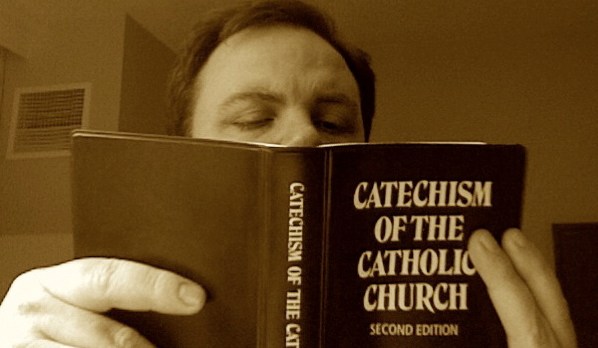Some Catholics get apoplectic about apologetics. They argue with atheists and pick fights with Protestants. They not only need to win, they want to bash the enemy. Valiant warriors for Catholic truth, they shout down the unbelievers and shoot Bible verses back and forth like gunslingers in a shootout. As veteran apologist Patrick Madrid has observed, “They end up winning an argument but losing a soul.”
“Apologetics” is the attempt as St. Peter advised, “to be ready at all times to answer anyone who asks you to explain the hope you have within you” (1 Peter 3:15). To give that answer, one must first gather the information and study hard to understand and master the content. Secondly, one has to identify the person asking the questions.
For apologetics to be an effective part of the New Evangelization the right tone must be established between the Catholic and the inquirer. I often get e-mails from Protestants or atheists who are trying to pick a fight. I have learned to never take the bait. Instead I thank them for the e-mail and explain that I don’t argue with people, but if they have questions about the Catholic faith I’ll take all the time in the world to answer them to the best of my ability.
The approach is never to prove another person wrong, but always to connect with what is good about their belief. Everyone longs for truth, beauty and goodness. That’s the way we’re wired. Therefore, no matter what a person’s religion or belief system, there is some good within it. If there weren’t, they would not be so committed to it. The effective apologist therefore looks for what is beautiful, good and true in his sparring partner’s belief system and connects with that, affirms it and builds on it.
This principle is established in a document, Nostra Aetate, the Declaration on the Relation of the Church to Non-Christian Religions, which was published 50 years ago this month.
“The Catholic Church rejects nothing that is true and holy in these religions. She regards with sincere reverence those ways of conduct and of life, those precepts and teachings which, though differing in many aspects from the ones she holds and sets forth, nonetheless often reflect a ray of that Truth that enlightens all men.”
Catholics are called to recognize the goodness, truth and beauty that is present among those who are followers of Jesus Christ despite their separation from the Catholic faith. The Catechism teaches, “One cannot charge with the sin of the separation those who at present are born into these communities [that resulted from such separation] and in them are brought up in the faith of Christ, and the Catholic Church accepts them with respect and affection as brothers. … All who have been justified by faith in baptism are incorporated into Christ; they therefore have a right to be called Christians, and with good reason are accepted as brothers in the Lord by the children of the Catholic Church” [para. 818].
The effective Catholic apologist therefore builds on the positive aspects of other religions, other Christian groups and even on the humanitarian values espoused by atheists. Does this mean evangelization is unnecessary? No. As soon as church documents affirm the presence of goodness, truth and beauty in other religions, they also call for Catholics to be tireless in their efforts to share the fullness of God’s love and life, which is available only within the Catholic faith.
This is done most effectively by combining intellectual arguments and positive answers with real human examples of living faith. Why I’m Catholic is a great website that publishes genuine conversion stories, while the Eternal Word Television Network provides a huge online compilation of biographies of saints. The best “answer to the hope that lies within us” is therefore a combination of reasonable arguments, compassionate answers and the dynamic evidence of lives transformed by the power of God alive in the world today.
Resources:
Training for apologists is available in recognized college courses and informally through personal study. Excellent books, audio and visual materials are available from Catholic publishers, but some of the best resources are available online. Famous Christian and theist apologist William Lane Craig runs the Reasonable Faith website for example, while new-media expert Brandon Vogt provides an internet forum for conversations with atheists and agnostics at Strange Notions. Anglican Wycliffe Hall runs a smart website called Oxford Center for Christian Apologetics, while Catholic writer and blogger Dave Armstrong maintains a huge site called Biblical Evidence for Catholicism, which is full of resources specifically for dialogue between Protestants and Catholics.
Read Fr. Longenecker’s blog, follow him on Twitter, browse his books and stay in touch at dwightlongenecker.com.

